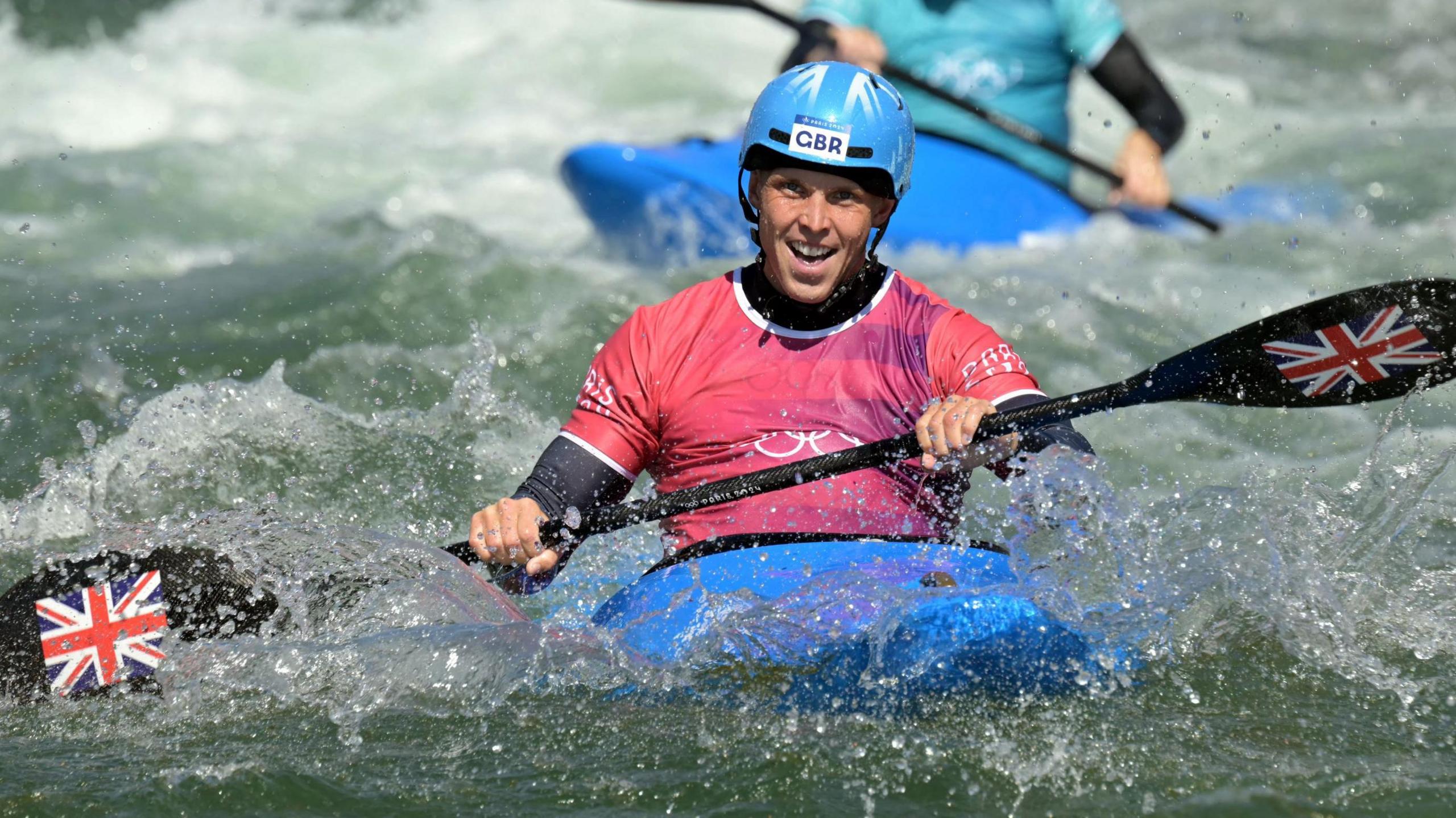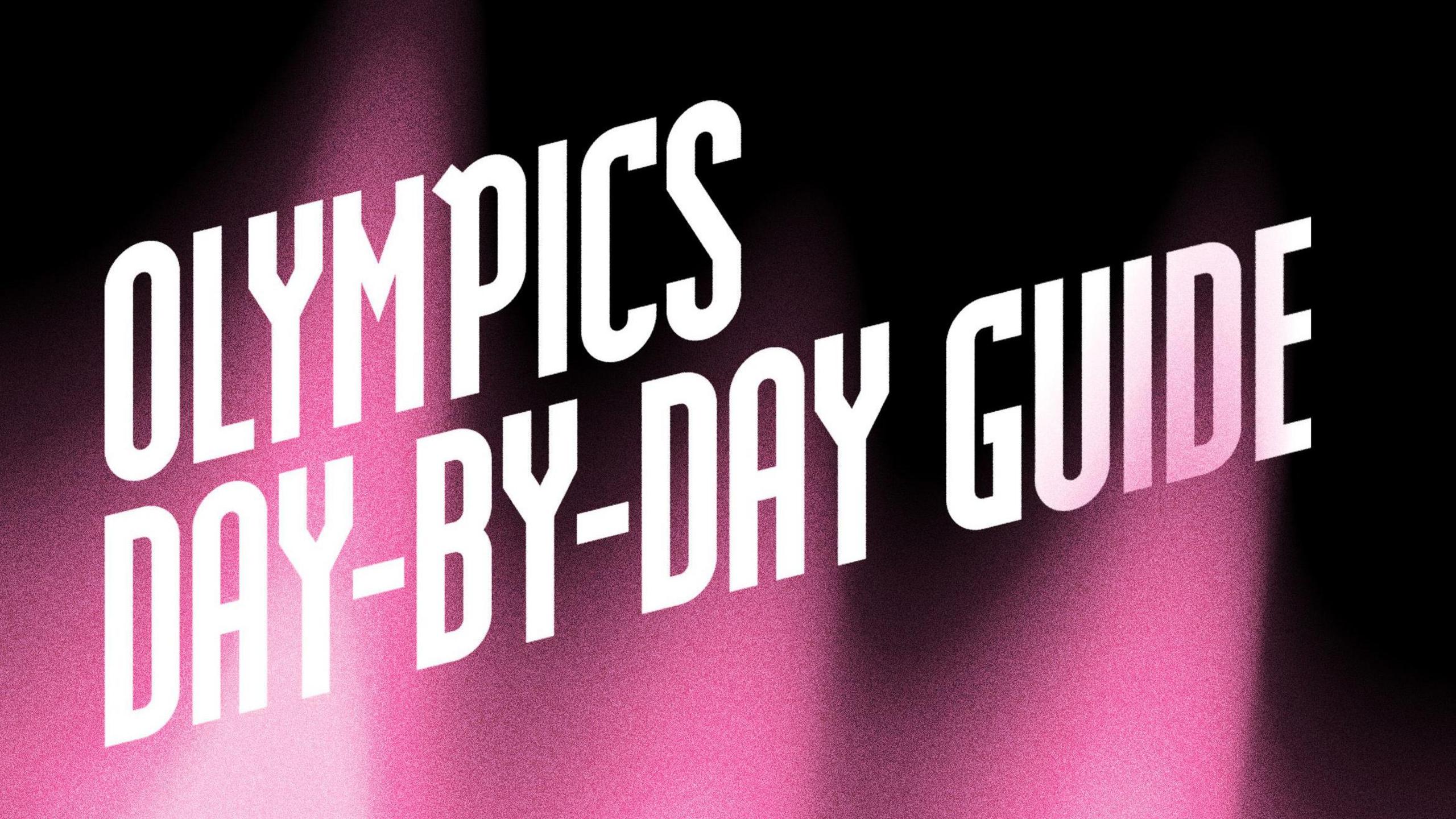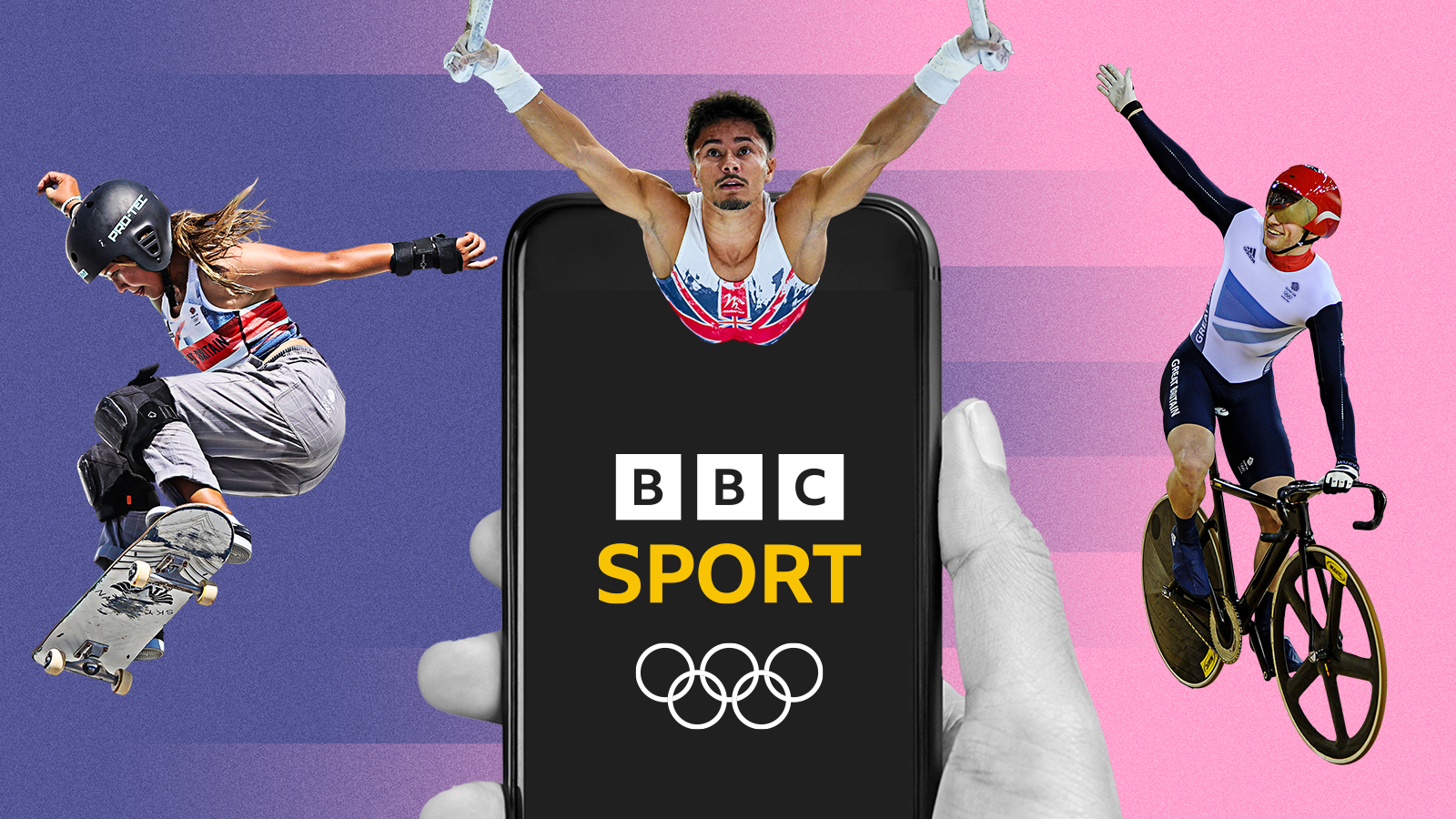GB's Clarke & Woods win Olympic kayak cross medals
Clarke comes back to claim silver
- Published
Great Britain’s Joe Clarke won Olympic silver after team-mate Kimberley Woods claimed bronze in a wonderfully-chaotic kayak cross event which entertained and excited the Paris 2024 fans.
In an event making its Olympic debut, Clarke finished second to make up for missing out on a medal in the men's kayak single final earlier this week.
"I came here for gold. I've got silver, which I'm very proud of. What a Games," said 31-year-old Clarke, who was selected by Team GB after being overlooked for Tokyo 2020.
Moments earlier, Woods clinched her second medal of the Games after also winning bronze in a dramatic women's single final.
"It is a little bit bittersweet because I was trying to go for that gold and I felt like I was in a really strong place," said 28-year-old Woods.
"But to come away with two bronze medals... no-one has ever done that before, especially in Britain, so I am really proud of myself."
Their success means Team GB have won four medals in the canoe slalom discipline - the best haul they have ever had at an Olympics.
Team-mate Mallory Franklin was unable to progress after faulting in her quarter-final earlier on Monday.
Woods wins bronze medal
How British pair won medals after tough journeys
Woods and Clarke qualified by winning their quarter-final and semi-final races - which feature four kayakers tackling the course at the same time - leaving a double gold celebration looking possible.
World champion Woods started her final strongly but had difficulty at the final gate and lost momentum.
She crossed the line fourth, but was awarded bronze after Germany's Elena Lilik was disqualified for a fault earlier in the race.
Attention quickly moved to Clarke. He was aiming for Olympic redemption after missing out on the Tokyo 2020 team even though he was in the form of his life.
Clarke, a three-time world champion, started more slowly than in his previous races and was unable to make up the gap on New Zealand's Finn Butcher.
Both British paddlers, who train at Lee Valley White Water Centre, celebrated ecstatically after winning medals which are the reward for coming through tough personal journeys.
"I came here as a bit of redemption for missing Tokyo and I've certainly put that to bed," said Clarke.
Woods found salvation through canoeing after enduring bullying which led to depression and self-harm.
Since coming through therapy between 2016 and 2018, Woods' career has soared and led to the world title last year.
She celebrated another Olympic medal by jumping up and down on the podium alongside Australian gold medallist Noemie Fox and French silver medallist Angele Hug.
"Everyone knows about my mental health journey. Now thankfully I can use this platform for whatever I want to use it for," she said.
"Hopefully people will now go and listen to my story and go and get the help that they need."
What is kayak cross?
In short, it's organised chaos.
Four paddlers jostle for position as they pass through a series of gates - six downstream and two upstream - on a course which is about 210m long.
Contact between the paddlers is allowed as we saw when Woods tried to take out leader Fox at the final gate.
The paddlers start from a raised ramp and are released into the water from a height of around two metres.
There is a kayak roll/eskimo roll zone and barrier, where the competitor must perform a sideways 360 degree roll.
The targeted run time is 45-80 seconds.
All this happens in a party atmosphere as electronic music is pumped out loudly, with about 10,000 boisterous fans cheering on the paddlers from an enormous stand overlooking the course.

Joe Clarke won the second Olympic medal of his career
Related topics
- Published10 August 2024

- Published26 July 2024

